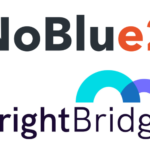Recent statistics show that only 24% of UK enterprises run ERP software. And while take-up among larger companies is around fairly high at 80%, only 30% of small businesses employ ERP software.
But small and medium-sized businesses could increase their competitiveness and productivity by implementing business software to run the entire operation. ERP solutions can manage all aspects of a company’s business – from finance and CRM, to ecommerce, warehousing and more.
These are the compelling reasons for both small and mid-sized businesses to implement an ERP system.
Save Time
One of the major advantages of an ERP system is that it automates processes. It streamlines the routine tasks that can be mundane and laborious, thus saving a lot of time for your employees – not to mention eliminating a lot of the drudgery.
An ERP solution does away with the manual work involved in creating invoices, consolidating financial figures and preparing performance reports.
Minimise Errors
Automation is again significant in reducing errors as it means staff do not have to rekey information. So, for example, your sales figures automatically feed into the financials – they don’t need to be sent daily from the sales team to the finance department for manual entry into a separate system.
By minimising human-made errors, you ensure you get things right the first time, and your business can operate more efficiently.
A Single System
As your small business grows, your internal functions gradually develop into fully-fledged departments. Over time, working methods diverge as these departments begin to implement their own processes and practices. If everyone in the business is already using the same base tool, then there is no need for separate procedures to emerge and the company can progress in a united fashion, with all staff operating in the same way.
Equally, with an ERP, you only have a single set of data – rather than separate, siloed repositories, each perhaps containing different information, or perhaps duplicated records. With separate databases, the chances of information becoming inaccurate are high. For example, marketing might add an alternative telephone number for a contact, which finance then wouldn’t automatically have access to.
Greater Collaboration
When you employ a single system, your teams can work together better. There’s no emailing of data between departments, and nor does the IT team have to extract data on demand for executives. In management meetings, all the team heads will be working from the same data. Business functions can then collaborate more effectively, sell more and provide better customer service for the greater good of the business as a whole.
Faster Year-End Closing and Reconciliations
Is it taking you days or weeks to finalise and reconcile everything at the end of your financial year? The automation in an ERP system helps to drastically cut down the time it takes.
An ERP system can automatically close the accounts receivable and accounts payable at the year-end and then add your net profit or loss to your retained earnings account. It can even run you through a checklist of actions to take before you then officially close the year and prepare your financial statements.
Better Decision-Making
With disparate systems and lack of access to good data, you can’t hope to make the right decisions for your company.
An ERP is vital for a small business. If gives it the insights it needs to help it thrive, even in tough economic conditions, like currently. With detailed visualisations and rich, real-time data from across all operations of your company, you can better understand how the business is performing and where improvements can be made. You gain deeper insight into your customers and can analyse buyer behaviour with a view to developing your offerings or upselling and cross-selling.
Competitive Advantage
With the greater efficiency that an ERP system brings, you gain competitive advantage. With better insight into your operations and an integrated system that manages the whole business, you become better at what you do. Small businesses can service their customers better and react more quickly to developments in the market.
Preserve Cash
Small businesses can’t prosper without ready access to cash. In fact, running out of money is a big risk for a small business. An ERP helps you avoid cashflow problems by giving you the facts about how much money you have coming in and what you are spending. This level of detail can be the difference between financial fortune and business ruin.
An ERP gives you more effective business planning functionality, which allows you better ward off poor financial decision-making and the threat of bankruptcy.
Be More Profitable
Many of the advantages already discussed add up to savings in time or accuracy, which in turn lead to financial savings. An ERP can help you by reducing the amount of time your staff spend on manual activities or by eliminating any need for them to redress things that have gone wrong. Time savings equate to money savings.
On top of this, making better decisions, strengthening internal teamwork and outsmarting your competitors can help bring in additional or incremental revenue.
NetSuite ERP is the perfect fit for small and medium-sized businesses due to its scalability and modularity. You can add user licenses and modules as you need them, so the price is always appropriate to your business size. If you are wondering if you can afford NetSuite, get in touch with one of our certified consultants for a tailored quote for your business. We have more than 20 years’ experience in helping all sizes of business benefit from cloud software.










